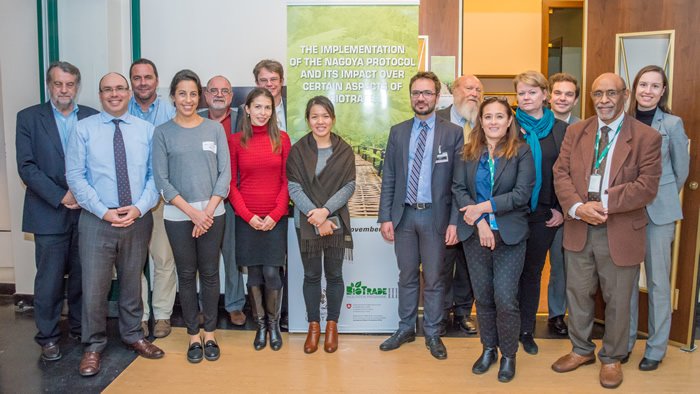The Nagoya Protocol on Access to Genetic Resources and the Fair and Equitable Sharing of Benefits Arising from their Utilization (ABS) to the Convention on Biological Diversity is a supplementary agreement to the Convention on Biological Diversity. It provides a transparent legal framework for the effective implementation of one of the three objectives of the CBD: the fair and equitable sharing of benefits arising out of the utilization of genetic resources.
The Protocol entered into force on 12 October 2014 and has so far been ratified by 68 States, including India, Mexico Norway, Peru, South Africa, Switzerland and Vietnam, and the EU.
The Protocol applies to research and development activities over genetic resources and natural biochemicals, which are key inputs to industries in the food, pharmaceutical, personal care and botanical industries. It will thus have significant implications over how BioTrade businesses and projects operate, as well as on the international trade of biodiversity-based products.
The implementation of the Protocol is placing considerable pressure on providing countries to adjust, develop and implement effective and efficient ABS frameworks. At the same time, increased interest in BioTrade and the often-overlapping boundaries with ABS regimes require guidance as to how BioTrade and ABS positively interact and generate complementarity between them.
Users of genetic resources and natural biochemicals will have to obtain prior informed consent (PIC) from provider countries and negotiate mutually agreed terms (MAT) on the type of access sought and intended use for the material obtained.
Peer reviewers discussed potential recommendations on how to meet the challenges ahead. This will be the basis for the development of a policy guide for countries and practitioners on how to develop ABS frameworks supportive of BioTrade.
To better understand these issues, UNCTAD commissioned a study titled "Facilitating BioTrade in a Challenging Policy and Legal Environment: Options for Improved Action". The study offers an overview of some of the key issues and connections between BioTrade and ABS under the framework of the Nagoya Protocol, the challenges faced by different interested actors and suggestions of ways to overcome them in terms of interpretation, policies and legal answers.
According to Manuel Ruiz, Director of the Biodiversity Programme of the Peruvian Society of Environmental law (SPDA) and co-author of the study, the mains findings suggest that linkages between BioTrade and ABS are becoming more evident in light of the Nagoya Protocol, and that there is potential for complementarity and mutual supportiveness. Understanding these connections is fundamental to ensure legal certainty and create an enabling environment to facilitate sustainable biodiversity related businesses and projects.
Bonapas Onguglo, in charge of UNCTAD's Trade and Environmental Branch, stated that "many countries are starting to introduce new implementing regulations on access and benefit sharing or revising existing ones. Provider and user countries' new regulatory requirements will define future flows of genetic resources and natural biochemicals, as well as the level of protection of the associated traditional knowledge".
"UNCTAD activities in this regard will provide a practical and user-friendly guidance for the integration of new regulatory obligations on ABS within countries' biodiversity strategies" said Ms. Veronique Rossow, Head of Research and Development, PhytoTrade Africa.



